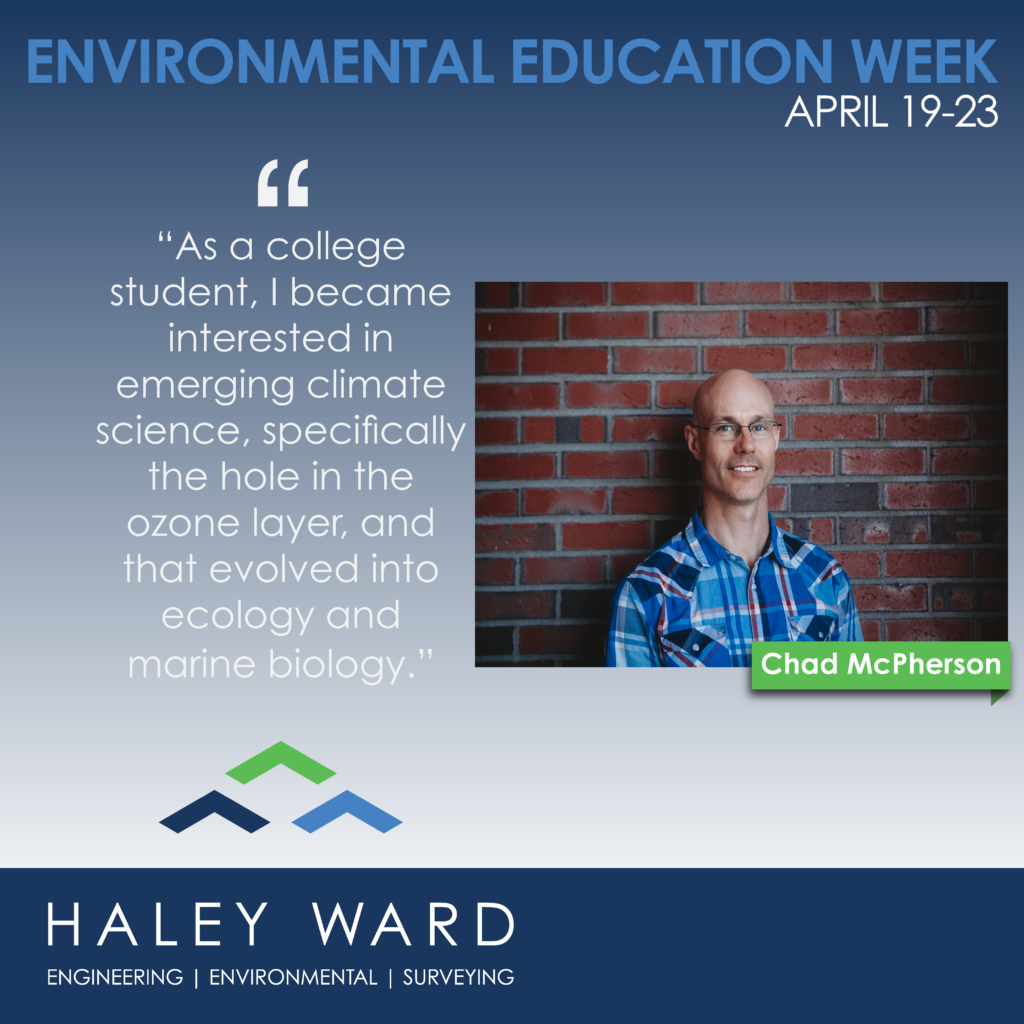Environmental Education Week: Interview with Chad McPherson

National Environmental Education Week (EE Week) is the nation’s largest celebration of environmental education! Throughout the week, we will be featuring a different environmental professional each day to gain some insight on why EE Week is important to them.
Today we are featuring Senior Environmental Technician Chad McPherson.
Why do you feel that it is important for young people to be educated in the environmental sciences?
It sounds cliché but young people are the key to the future. If they grow and develop with an education that includes the environmental sciences, they will likely make decisions that are mindful of the environment. These decisions may in turn positively influence decisions made by their friends, family, and community.
What does being a “Good Citizen” to the environment mean to you?
I believe being a “Good Citizen” to the environment means doing things to improve the environment (e.g. plant a tree), making decisions with the environment in mind (e.g. buying re-useable products), and understanding how local, state, and federal government decisions have impacted or may impact the environment (e.g. reading articles and analyses), getting involved with a local environmental project (e.g. participate in an Earth Day project).
If a young person wanted to do something at home to spread environmental awareness, what would you suggest?
Subscribe to a podcast or two about the environment, listen, share, and discuss with family and friends. A nice starter would be “How to Save a Planet” by Gimlet. It’s free, it’s easy to understand, and it’s well produced.
Why do you feel that it is important to start introducing Environmental STEM activities in the classroom at a young age?
I would reiterate my answer to the first question and supplement by saying that getting young people to understand and interact with the environment through STEM study will lead to positive science based solutions.
What made you decide to pursue a career in the environmental sciences?
I have always been interested in science. As a college student, I became interested in emerging climate science, specifically the hole in the ozone layer, and that evolved into ecology and marine biology. I did a brief study on UV light impacts on phytoplankton and I did a paper on small part of the re-forestation of Mount St. Helens through wildlife.
What is one little change that someone can do to help the environment that ends up making a big difference?
I’ve consumed hours of various media that debates this issue. Based on my understanding of the issues and the data, it appears that creating positive community change can produce the biggest impact such as land use ordinances, protecting green spaces, and funding environmental projects.
Think locally: If you were a teacher, where would you take your students to learn about the environment and why?
I would take my students to two types of places. One type of place would be a park or recreation area to observe the natural environment and habitats. The second type of place would be a commercial or industrial business to show them what they are doing to minimize their impacts on the environment. I think comparing and contrasting would lead to some interesting discussion and points of view.
What has been your favorite environmental project that you have been on for Haley Ward?
I have worked on numerous large parcel timberland properties in the North Maine Woods. I really enjoy traveling the “Big” woods of Maine and seeing the variety of terrain and habitats.